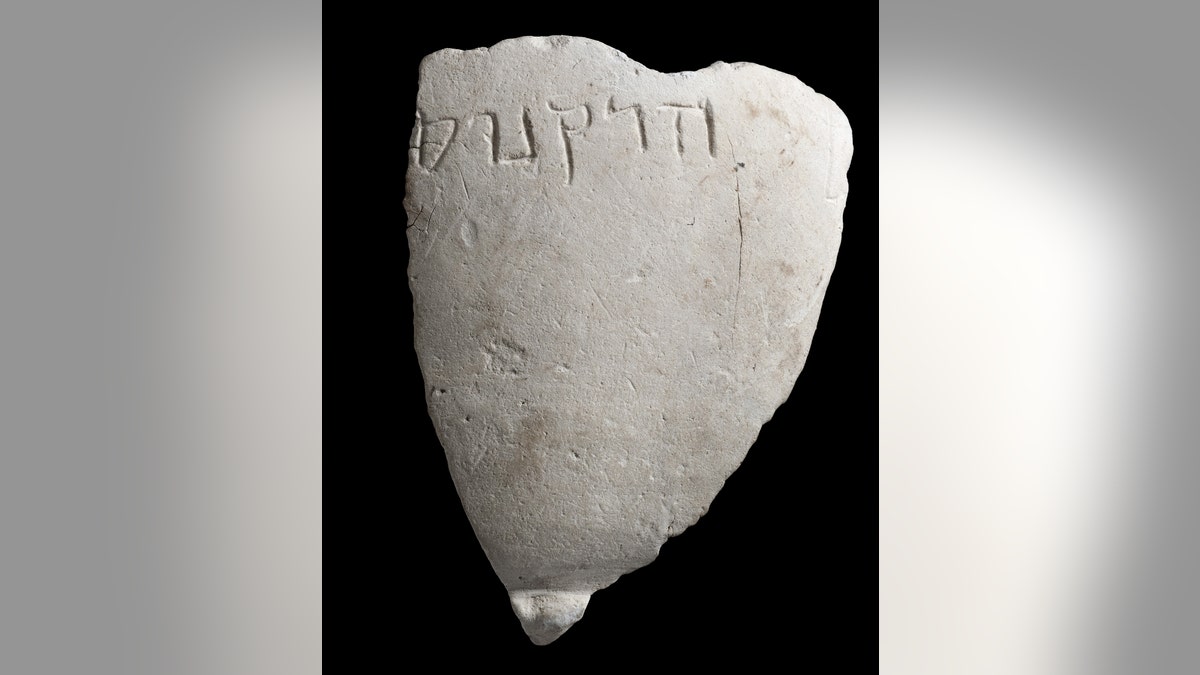
A fragment of the chalk bowl from the Hasmonean period, which is engraved with the name “Hyrcanus”. (Photographic credit: Clara Amit, Israel Antiquities Authority)
Israeli archaeologists digging beneath a parking lot in Jerusalem have uncovered fragments of a rare, 2,100-year-old stone bowl that was fashioned from chalk (a type of limestone) and had a name inscribed on it in Hebrew.
The bowl, which bears the name “Hyrcanus,” was found beneath the foundations of a mikvah, a small pool built into the ground that Jews used for ritual bathing, a practice that continues today among Orthodox Jews and many Conservative Jews.
"This is one of the earliest examples of chalk vessels to appear in Jerusalem,” said Dr. Doron Ben-Ami of the Israel Antiquities Authority and Professor Esther Eshel of Bar-Ilan University, in a press release.
CONTENTS OF FIRST DISCOVERED PHILISTINE CEMETERY REVEALED
“In the past, these vessels were widely used mainly by Jews because they ensured ritual purity.… They were considered vessels that cannot become ritually unclean."
The bowl was discovered during an excavation of the Giv’ati parking site in the City of David, a contested area of Jerusalem that has been settled by Israelis.
The researchers are fascinated with the name etched into the bowl because there are few archaeological records inscribed with names from the Hasmonean period. They can’t tell if the inscription was a routine act or a special tribute, or if Hyrcanus was a high-ranking person or an ordinary citizen.
UNDERWATER HEBREW TABLET REVEALS BIBLICAL-ERA RULER OF JUDEA
“The name Hyrcanus was fairly common in the Hasmonean period," Ben-Ami and Eshel said.
“We know of two personages from this period who had this name: John Hyrcanus, who was the grandson of Matityahu the Hasmonean and ruled Judea from 135–104 BCE, and John Hyrcanus II, who was the son of Alexander Jannaeus and Salome Alexandra; however, it is not possible to determine if the bowl belonged specifically to either of them.”
The Giv’ati parking site in Jerusalem Walls National Park is among the largest excavation areas opened in Jerusalem. Archaeologists have uncovered a wealth of artifacts from different periods at the site.




















